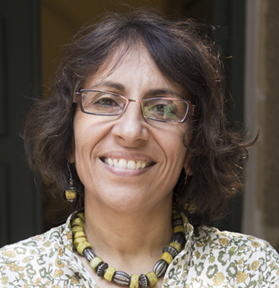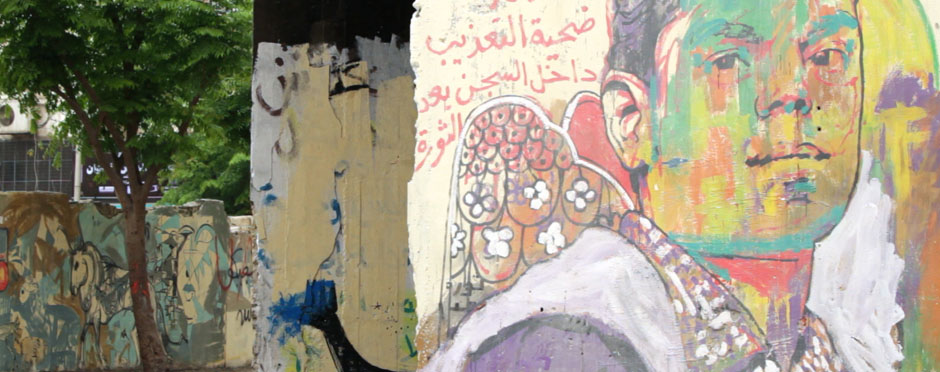SINOPSIS
Arij emprende un viaje al pasado durante los momentos críticos de la revolución egipcia. Sin embargo, se ve obstaculizada de contar una historia coherente por la incapacidad de la cineasta para conectar estos diferentes recuerdos. Porque, citando la novela cubana Memorias del Subdesarrollo, “es la propia nación la que ha perdido su capacidad para recordar y conectar”.
La película sigue a cuatro personajes muy diferentes: En el Alto Egipto; Safwat Samaan, un activista político Copto y el coleccionista de fotos Francis Amin tratan de reconstruir la historia de su ciudad natal Luxor; en El Cairo el escritor socialista Alaa El-Dib compara la revolución de 1952 y la de enero de 2011 y reflexiona sobre su propia desilusión política y marginación. Su depresión es yuxtapuesta de modo antitético al entusiasmo de una joven islamista y diseñadora Web, Awatef Mahmoud.
Arij undertakes a journey into the past during the critical times of Egyptian revolution. It is hampered, though, by the filmmaker's inability to connect these different memories and tell a coherent story. For, quoting the Cuban novel Memories of Underdevelopment, “it is the nation itself that has lost its ability to remember and connect.”
The film follows four very different characters: In Upper Egypt Safwat Samaan, a Coptic political activist and the photo collector Francis Amin try to reconstruct the story of their hometown Luxor; in Cairo, socialist writer Alaa El-Dib compares the 1952 and the January 2011 revolution and reflects on his own political disillusionment and marginalization. His depression is antithetically juxtaposed to the enthusiasm of a young female Islamist, cyber-designer Awatef Mahmoud.
BIOGRAFÍA
 Viola Shafik, PhD, es una cineasta independiente, curadora y erudita en materia de cine. Actualmente ocupa el cargo de Jefa de Estudios del programa Campus Documental de Oriente Medio y Norte de África. Es autora de, inter alios, Cine Árabe: Historia e Identidad Cultural (AUC-Press, El Cairo, 1998) y Cine Popular Egipcio: género, clase y nación (AUC-Press, 2007). Fue profesora de Estudios Cinematográficos de la Universidad Americana de El Cairo, ha trabajado como consultora para festivales de cine internacionales y para iniciativas de formación; particularmente en La Biennale di Venezia, el Dubai Film Connection y el Laboratorio de Guionistas al-Rawi. Además, es miembro del comité de selección del World Cinema Fund (Berlinale). Dirigió varios documentales, entre otros: Shajarat al-laymun / The Lemon Tree (1993), Musim zar’ al-Banat / Plantación de Mujeres (1999), Die Reise der Königin Teje / Viaje de una reina (2003), Jannat ‘Ali -Ali im Paradies / Mi nombre no es Ali (2011) y Arij / Perfume de Revolución (2014).
Viola Shafik, PhD, es una cineasta independiente, curadora y erudita en materia de cine. Actualmente ocupa el cargo de Jefa de Estudios del programa Campus Documental de Oriente Medio y Norte de África. Es autora de, inter alios, Cine Árabe: Historia e Identidad Cultural (AUC-Press, El Cairo, 1998) y Cine Popular Egipcio: género, clase y nación (AUC-Press, 2007). Fue profesora de Estudios Cinematográficos de la Universidad Americana de El Cairo, ha trabajado como consultora para festivales de cine internacionales y para iniciativas de formación; particularmente en La Biennale di Venezia, el Dubai Film Connection y el Laboratorio de Guionistas al-Rawi. Además, es miembro del comité de selección del World Cinema Fund (Berlinale). Dirigió varios documentales, entre otros: Shajarat al-laymun / The Lemon Tree (1993), Musim zar’ al-Banat / Plantación de Mujeres (1999), Die Reise der Königin Teje / Viaje de una reina (2003), Jannat ‘Ali -Ali im Paradies / Mi nombre no es Ali (2011) y Arij / Perfume de Revolución (2014).
Viola Shafik, PhD, is a freelance filmmaker, film curator and film scholar. She currently holds the position of the Head of Studies of the Documentary Campus MENA program. She authored, among others, Arab Cinema: History and Cultural Identity (AUC-Press, Cairo, 1998) and Popular Egyptian Cinema: Gender, Class and Nation (AUC-Press, 2007). She taught Film Studies at the American University in Cairo, has worked as a consultant for international film festivals and training initiatives ─most notably La Biennale di Venezia, the Dubai Film Connection and the al-Rawi Screenwriters Lab. Also, she is a member of the selection committee of the World Cinema Fund (Berlinale). She has directed several documentaries, among others: Shajarat al-laymun/The Lemon Tree (1993), Musim zar’ al-banat/Planting of Girls (1999), Die Reise der Königin Teje/Journey of a Queen (2003), Jannat ‘Ali-Ali im Paradies/My Name is not Ali (2011) and Arij/Scent of Revolution (2014).











